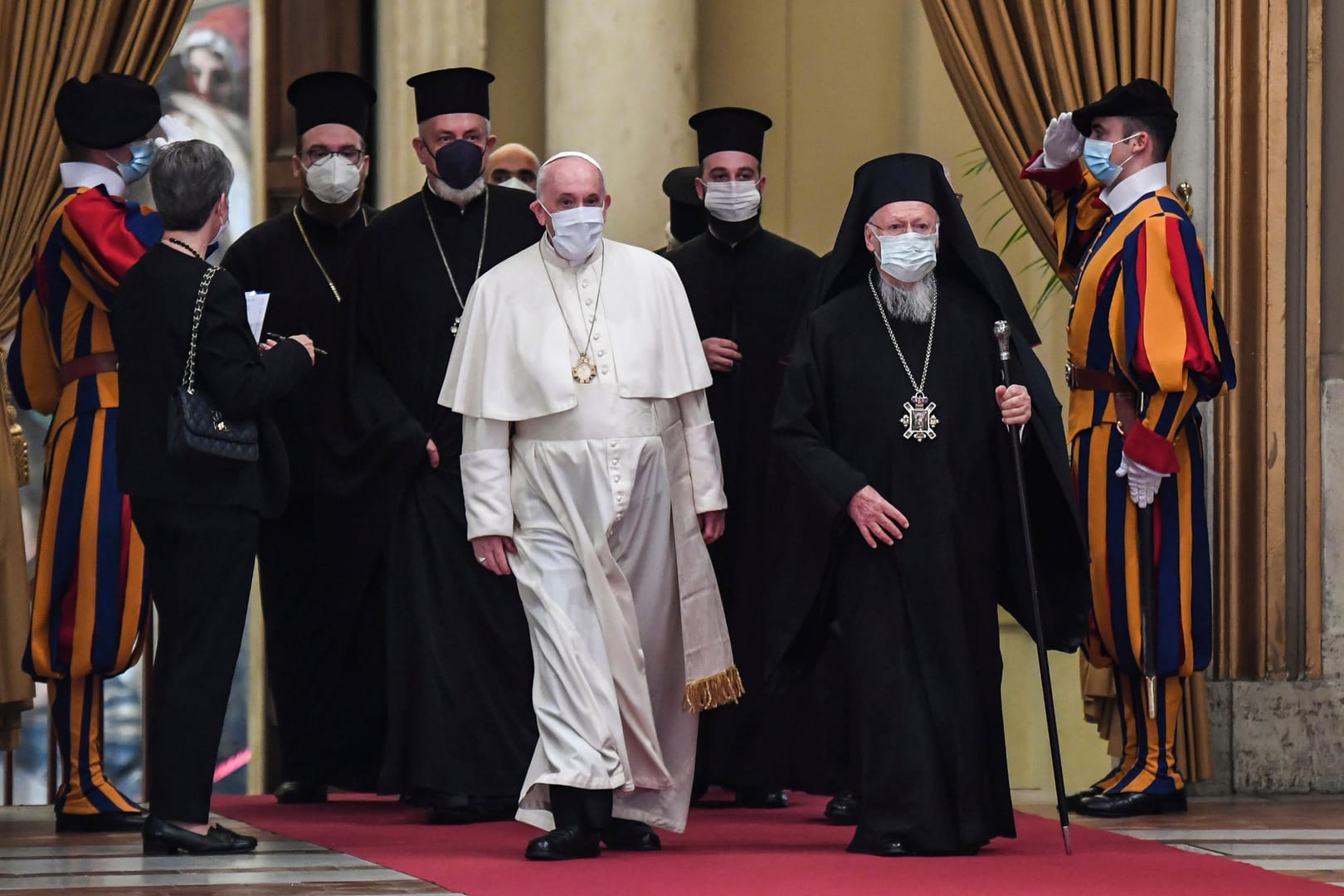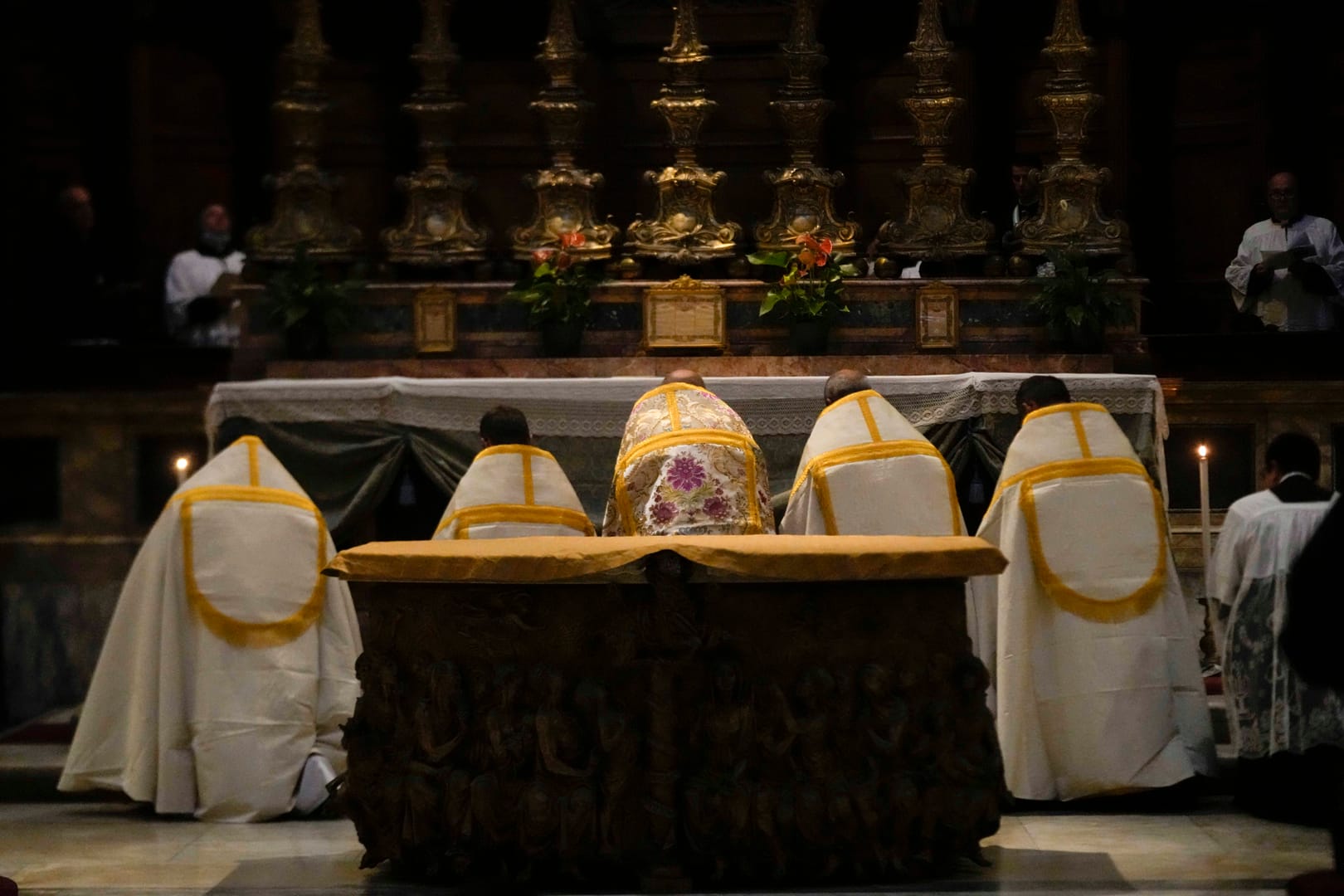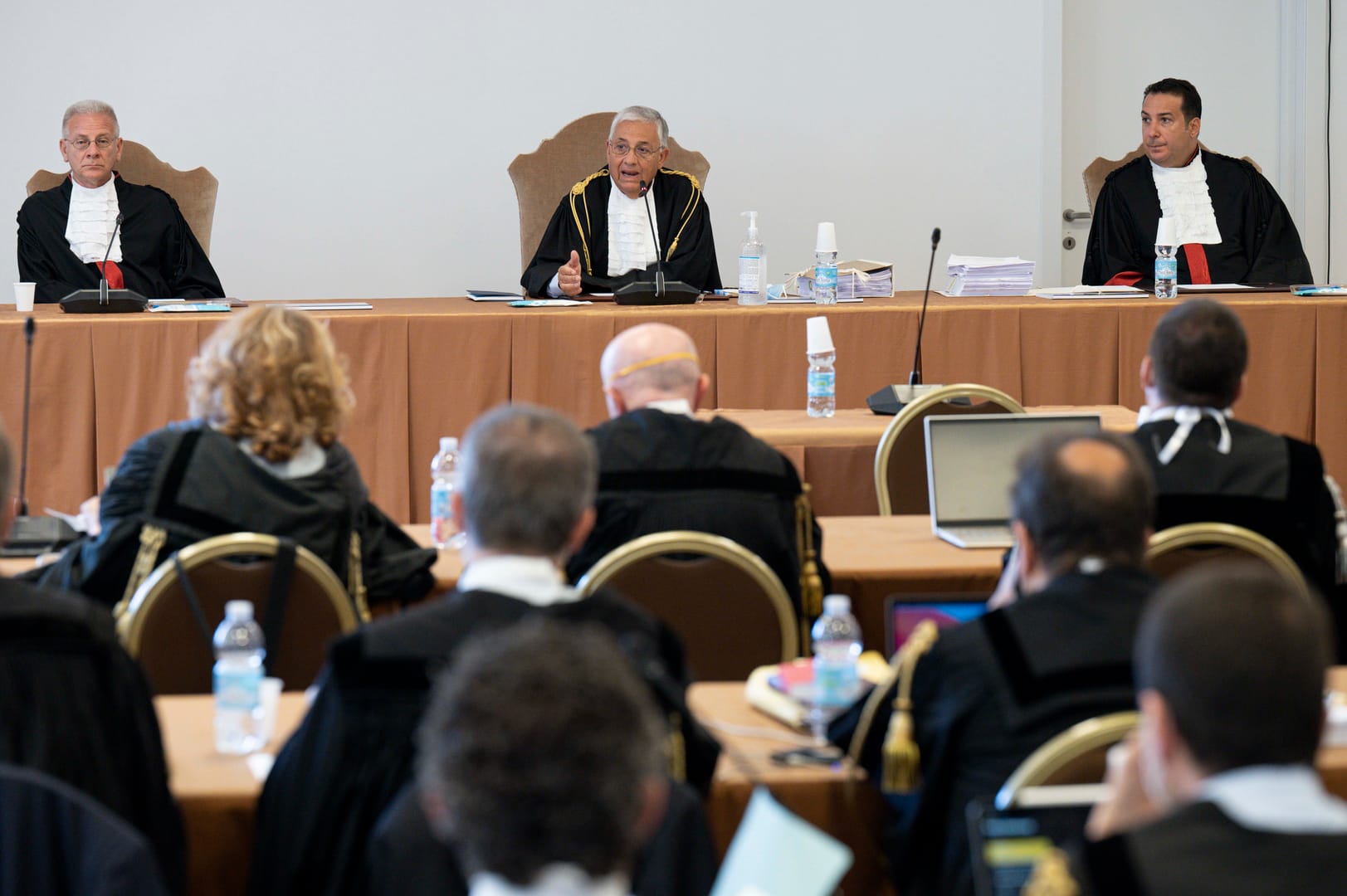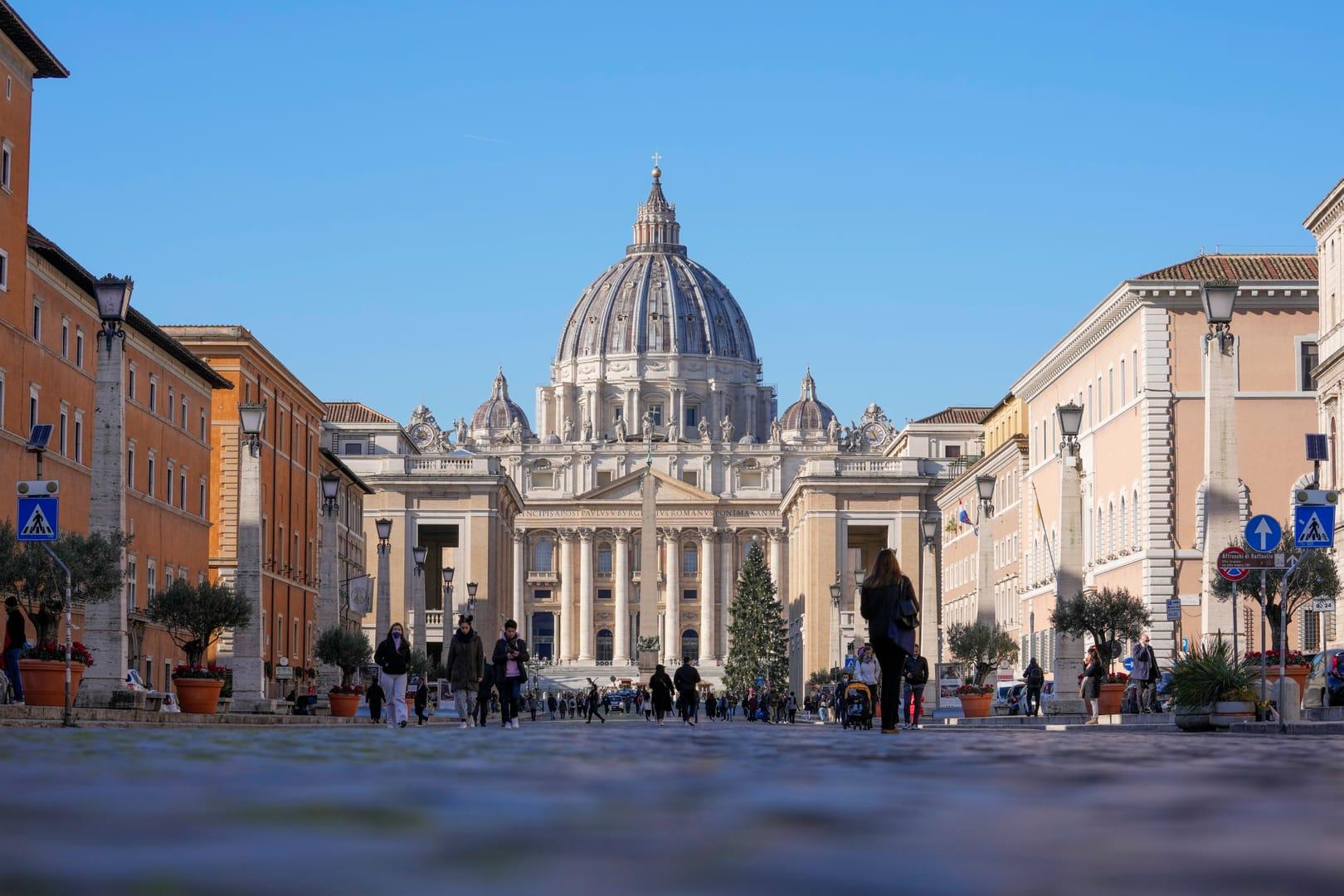[Editors note: This is part two of Crux Rome Bureau Chief Inés San Martín’s look back at 2021. Part one was devoted to the impact of the COVID-19 pandemic in the Catholic Church.]
ROSARIO, Argentina – Taking advantage of being relatively cooped up in the Vatican due to the ongoing pandemic, Pope Francis focused much of his energy on his own health, and in the ongoing efforts to reform the Church’s central government, with uneven results.
Papal health
Never one to respect American holidays, on Sunday, July 4 Francis underwent a major intestinal surgery, and almost half of his colon was removed, physically slowing down the energizer bunny of popes, at least during the summer months and well into the European autumn.
His “planned” surgery at Rome’s famed Gemelli Hospital was to treat “symptomatic diverticular stenosis” of the colon, a condition that involves bulges in the wall of the large intestine that can lead to a narrowing of the colon, often producing bloating and abdominal pain.

He spent 10 days in the hospital before heading home. It was the first hospitalization of Pope Francis’s papacy, and the first real health scare for the now 85-year-old pontiff since his election in 2013. It wasn’t his first surgery as pope, however, as he had cataract surgery in 2019.
Recovery from the surgery took longer than originally expected, and this undoubtedly influenced his decision not to go to the COP26 summit in Glasgow, Scotland, in early November. Months prior, during an interview with Spanish radio COPE, he had said that the only thing that could keep him from going was his health.
Caring for creation and human fraternity
Two of the pillars of Francis pontificate, interreligious dialogue and combating climate change, came together in perfect harmony in early October, when he hosted leaders of the world’s faith traditions in the Vatican. Together, they signed an appeal addressed to the political leaders who negotiated the future of the environment in the United Nations summit in Glasgow.
The appeal calls for the world to achieve net-zero carbon emissions as soon as possible to limit the global average temperature rise to 1.5 degrees Celsius above pre-industrial levels; presses wealthier nations to step up their climate action at home and financially supporting vulnerable countries to address climate change; and calls on governments to be more ambitious in transitioning to clean energy and sustainable use of land, with eco-friendly food systems and responsible financing.

The faith groups included the Catholic Church, Orthodox Church, Protestant denominations, Sunni and Shiite Muslims; Jews, Hindus; Sikhs; Buddhists; Taoists; and representatives of Zoroastrianism, Confucianism and Jainism.
The following day a similar group involving many of the same leaders issued an appeal in favor of a Global Compact on Education.
Education, Francis said, means accepting the other as they are, with no judgement nor discrimination, and upholding the rights of women, children and the most vulnerable. This is something which, he acknowledged, wasn’t always respected in the past.
Though years in the making, the two-weeks of negotiations in Glasgow was “mostly negative,” at least according to the leader of the largest Catholic coalition working on the protection of what Francis calls “our common home.”
“The commitments that were expected to be made, unfortunately have not,” said Argentine Tomas Insua, director of the Laudato Si Movement.
Latin Mass
If one of Pope Benedict XVI’s signature decisions was his 2007 document Summorum Pontificum (“Of the Supreme Pontiffs”) that was meant as an olive branch for traditionalist Catholics who wanted to celebrate the older, pre-Vatican II Latin Mass, then Francis’s Traditionis Custodes (“Custodians of Tradition”), issued in July, rolling back those permissions and adding some new restrictions of his own, was equally significant.
Days before Christmas, the pope doubled down on his efforts to quash the old Latin Mass, forbidding the celebration of some sacraments according to the ancient rite, with the Vatican’s liturgical office arguing that the clarifications and new restrictions were necessary to preserve the unity of the church and its sacraments.

December’s document was written in the form of questions and answers, including some that get into minute details that make clear the Vatican’s effort to minimize the spread of the old Mass: Parishes may not, for example, publicize the celebration of the old liturgy in parish bulletins or allow them to be celebrated at the same time as the ordinary Mass.
In a clear bid to dissuade seminarians from even learning the old rite, the new instruction urges seminary teachers to lead their charges “to an understanding and experience of the richness of the liturgical reform called for by the Second Vatican Council.”
The “trial of the century”
Though presented as the biggest sign of a successful reform of the Vatican’s justice system and as an honest attempt at clean up, the sprawling indictment of 10 individuals, including Italian Cardinal Angelo Becciu, issued by the Vatican’s promoter of justice – in effect, its chief prosecutor – might become the biggest bust in the tribunal’s history.
The Vatican’s civil tribunal ordered the defendants to stand trial over the accusations, which center mostly on a failed $400 million real estate deal carried out by the Secretariat of State and featuring the purchase of a former Harrods warehouse in the upscale London neighborhood of Chelsea.

At the time, Vatican media heralded the trial, unprecedented both in its scope and because it included a cardinal among the defendants, seen as the ultimate proof of the success of Pope Francis’s financial reforms.
However, the mounting mistakes made by the prosecutor’s office and the prelates public spat between Becciu and Australian Cardinal George Pell, the trial of the century is well on its way to becoming the shipwreck of the century.
Pell accused the Italian of being one of the main roadblocks to reform, and Becciu answered by noting that Pell knows more than anyone “the pain and suffering of unfair accusations,” referring to his trial, guilty verdict and final acquittal over child abuse accusations in Melbourne.
The main bone of contention is a series of audio and video recordings made by prosecutors of one of their key witnesses, which they first refused to turn over to defense lawyers as part of the discovery process, and then, in response to repeated court orders, submitted in redacted form with about two hours of missing material.
Stalled reform
Due to the COVID-19 pandemic travel restrictions, the council of cardinals that advices Pope Francis on the reform of the Roman Curia had to hold most of its meetings virtually, only traveling to Rome in December, to cap the year with an in person meeting.
Cardinal Oswald Gracias of Mumbai, India, one of the members of the council, told Crux soon after it ended that they had already handed the final draft of the new Vatican constitution, set to replace John Paul II’s Pastor Bonus, to Francis, and that the pope was reviewing it, making it “personal.” This process, that also included feedback from all the major offices of the Curia, however, is taking longer than expected, to the point that it has become “the elephant in the room.”
Rumors about the new constitution dropping “soon” were picked up virtually once every quarter during 2021, the strongest of them all being that Francis would release it or announce its due date during his remarks to the curia right before Christmas. Yet, as the ninth year of the pontificate is set to begin, the document remains unseen.
Follow Inés San Martín on Twitter: @inesanma














